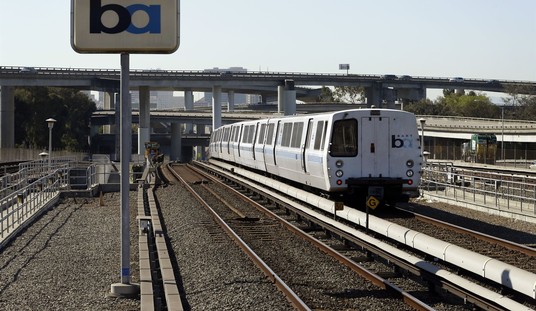The CBO can only score what is in front of them, so their assessment today that budget deficits will decline sharply in the next few years has some rational basis in statutory law. In reality, they may as well be predicting Paul Krugman’s War of the Worlds economics. Here’s what they predict for deficits as percentages of GDP:
If the recovery continues as CBO expects, and if tax and spending policies unfold as specified in current law, deficits will drop markedly as a share of GDP over the next few years. Under CBO’s baseline projections, which generally reflect the assumption that current law will not change, deficits fall to 6.2 percent of GDP next year and 3.2 percent in 2013, and they average 1.2 percent of GDP from 2014 to 2021.
Here’s what they say will cause this sudden closure of the deficit:
- Certain provisions of the 2010 tax act, including extensions of lower rates and expanded credits and deductions originally enacted in the Economic Growth and Tax Relief Reconciliation Act of 2001, the Jobs and Growth Tax Relief Reconciliation Act of 2003, and the American Recovery and Reinvestment Act (ARRA), expire at the end of 2012;
- The two-year extension of provisions designed to limit the reach of the alternative minimum tax, extensions of emergency unemployment compensation, and the one-year reduction in the payroll tax all expire at the end of 2011;
- Sharp reductions in Medicare’;s payment rates for physicians’ services take effect at the end of 2011;
- Funding for discretionary spending declines over time in real terms, in accordance with the caps established under the Budget Control Act; and
- Additional deficit reduction totaling $1.2 trillion over the 2012–2021 period will be implemented as required under the Budget Control Act.
The first point, the Bush-era tax rate schedules, will be a hard-fought battle in 2012, especially if the economy still hasn’t started producing jobs. The CBO estimates that the US economy will finish this year at a 2.3% GDP growth rate for 2011, a neat trick for an economy that has grown at 0.8% in its first two quarters, and at 2.7% in 2012. JP Morgan estimates that it will finish at 1.5% this year and 1.3% next year, and the difference is significant in terms of revenues and deficit projections. CBO uses their numbers to project an 8.5% unemployment rate by the end of next year, but above 8% all through 2013.
If that’s the case, a tax increase across the board — which is what the law states now — will hammer investment and consumer spending across a broad range of the American public. If Congress only repeals the lower-income rate increases, then trillions of dollars that would go to the CBO’s projections of deficit reduction would disappear; if all are repealed, add another $700 billion for the so-called wealthy … and that’s using static tax analysis.
What else does the CBO assume? They assume that Congress will let the AMT hammer more of the middle class, rather than pass the patch that they always apply to keep the middle class from booting them from office. They also assume that Congress won’t apply a doc-fix patch to Medicare, which they have done every time the cuts have become ready to be implemented, in order to keep providers from bailing out of the Medicare system altogether. The CBO also assumes that future Congresses will abide by the discretionary cuts put in place by the Budget Control Act for the next decade, and that they will also comply with those cuts that come from the joint select committee in November over the same period of time.
In other words, the view from Fantasyland looks pretty darned good.







Join the conversation as a VIP Member